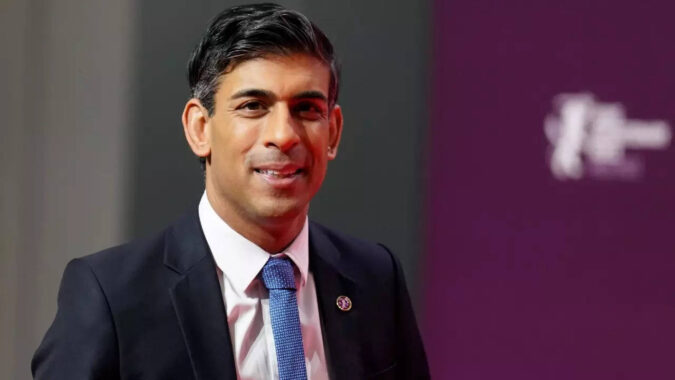LONDON: Britain’s governing Conservative Party avoided a drubbing Friday in a trio of special elections, managing to hold onto former premier Boris Johnson’s seat in suburban London.
Though the main opposition Labour Party and the smaller centrist Liberal Democrats overturned massive Conservative majorities to win a seat apiece, the Conservatives found some crumbs of comfort in their narrow success in Uxbridge and South Ruislip in west London.
Labour won the seat of Selby and Ainsty in northern England while the Liberal Democrats took Somerton and Frome in southwest England, with voters from both parties clearly backing the party most likely to beat the Conservative candidate.
Facing this level of tactical voting by voters, the defeats will leave many Conservative lawmakers rattled ahead of the likely national vote next year.
The defeats don’t mean a change of government, since the Conservatives still have a big majority in the House of Commons. Opinion polls have been giving Labour a double-digit lead nationwide over the Conservatives, who have been in power since 2010. Thursday’s results, if replicated at a general election, would certainly see Labour emerge as the biggest single party, possibly with a sizeable overall majority.
The results provide evidence that the Conservatives are losing ground among several types of voters amid the a cost-of-living crisis and the array of lockdown breaches that took place by Johnson and his team in Downing Street.
There is speculation that Prime Minister Rishi Sunak could look to shake up his government with a Cabinet shuffle as early as Friday.
Though the main opposition Labour Party and the smaller centrist Liberal Democrats overturned massive Conservative majorities to win a seat apiece, the Conservatives found some crumbs of comfort in their narrow success in Uxbridge and South Ruislip in west London.
Labour won the seat of Selby and Ainsty in northern England while the Liberal Democrats took Somerton and Frome in southwest England, with voters from both parties clearly backing the party most likely to beat the Conservative candidate.
Facing this level of tactical voting by voters, the defeats will leave many Conservative lawmakers rattled ahead of the likely national vote next year.
The defeats don’t mean a change of government, since the Conservatives still have a big majority in the House of Commons. Opinion polls have been giving Labour a double-digit lead nationwide over the Conservatives, who have been in power since 2010. Thursday’s results, if replicated at a general election, would certainly see Labour emerge as the biggest single party, possibly with a sizeable overall majority.
The results provide evidence that the Conservatives are losing ground among several types of voters amid the a cost-of-living crisis and the array of lockdown breaches that took place by Johnson and his team in Downing Street.
There is speculation that Prime Minister Rishi Sunak could look to shake up his government with a Cabinet shuffle as early as Friday.
